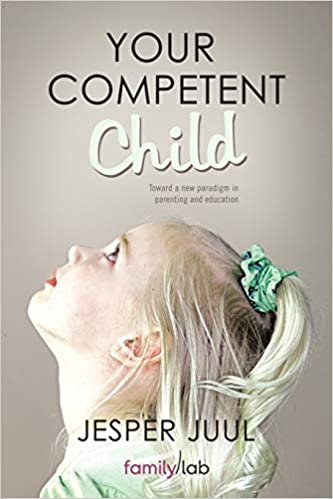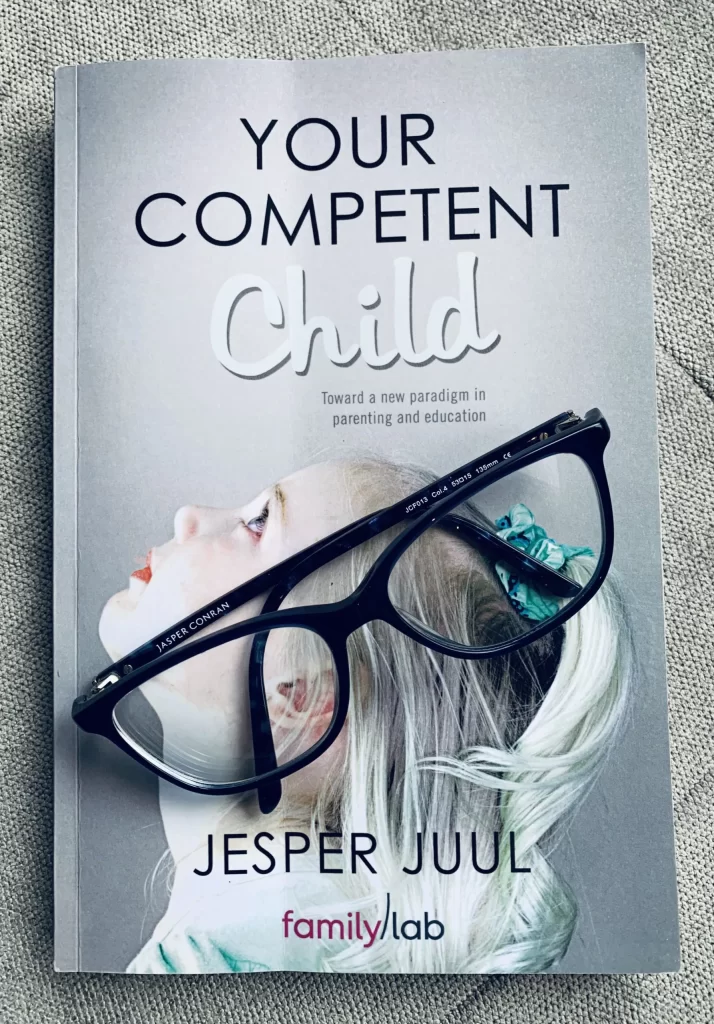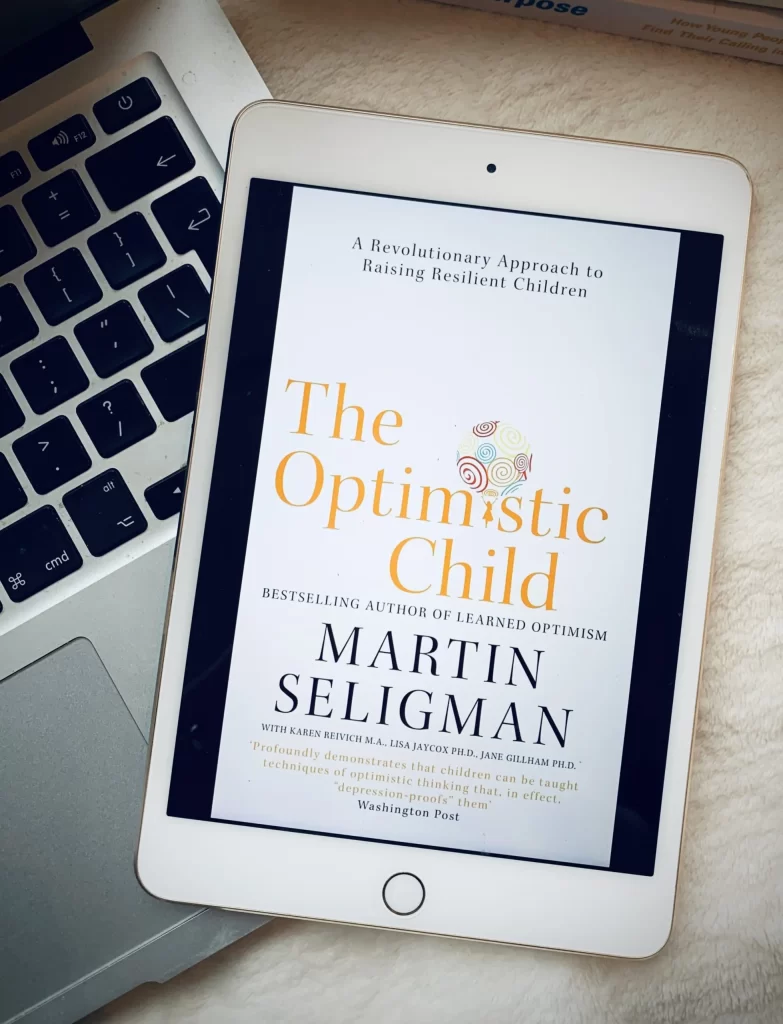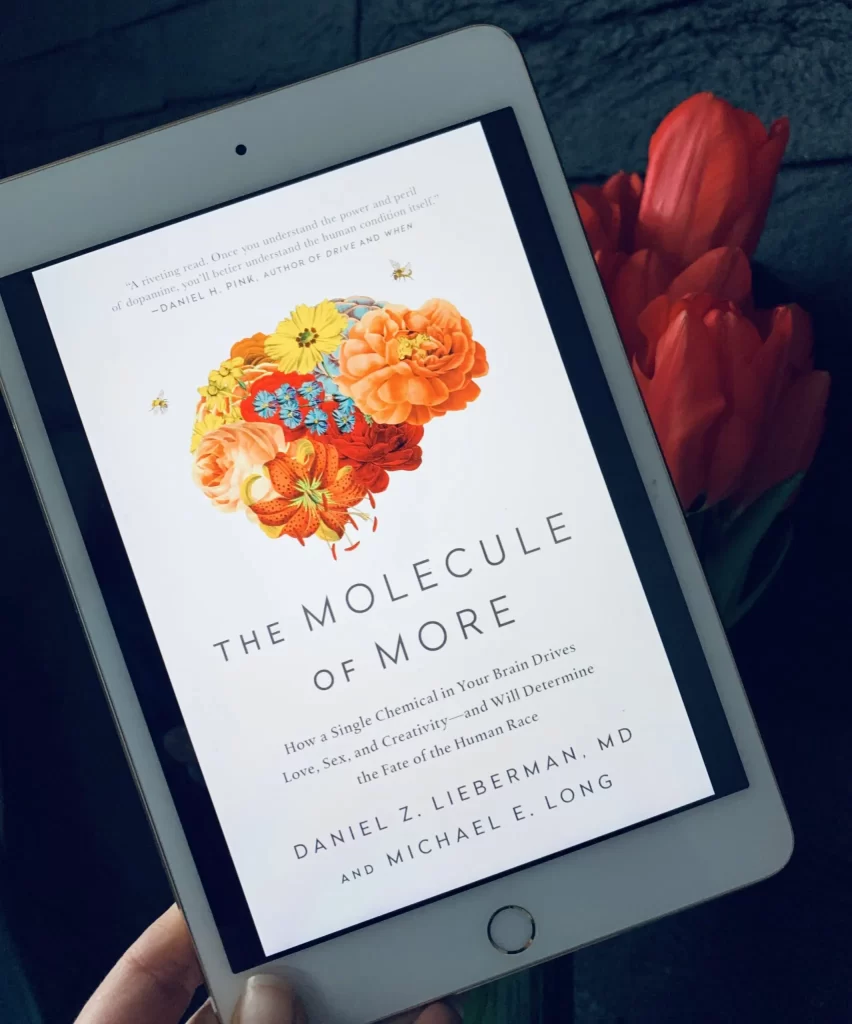 Your Competent Child – Book Summary
Your Competent Child – Book Summary
Toward a new paradigm in parenting and education
Jesper Juul
Balboa Press (29 Sept. 2011)
About the author:
Jesper Juul was a family therapist, husband, father and grandfather. He is the author of numerous books and a renowned international public speaker. He has founded Familylab International – an organisation committed to inspire parents to find new and healthier ways to become a successful family and professionals to create more profound relationships with children and youth in their care.
About the book:
In this book, Jesper Juul is turning upside down our thoughts about raising children. He redefines the ways we look at child’s behaviour and our relationship to our children and, ultimately, each other. Juul’s main idea is that children are competent from birth, and we always need to take them seriously and treat them with respect. The book is packed with fascinating ideas inspiring you to get off the autopilot and start raising confident, healthy, whole humans right from the start.
Key ideas from the book
Every child is competent from birth
“In my view, we have made a decisive mistake by assuming that children are not real people from birth. Both in the scientific and the popular literature, we tend to regard children as potential rather than actual beings, as asocial “semi-beings”. As a result, we assume, first, that they need to be subjected to massive influence and manipulation from adults, and second, that they have to reach a particular age before they can be regarded as equals and real people. In other words, adults have to find ways in which to bring up children so that they learn how to behave like real (that is, adult) human beings….This book questions this assumption. I believe most of what we traditionally understand by the term “upbringing” is both superfluous and directly harmful. Not only it is unhealthy for children, but it also hinders adults, precluding their growth and development. ”
In this book, Jesper Juul makes a very important point – every child is competent from birth, which means that he does not require any “fixing” as it has been assumed for a long time. Throughout the book, he compares the “old” approach (or traditional) to the child-rearing to the “new” one (suggested by him), so we could reflect on the differences and actually ACT to change our behaviour as parents, to give our kids a chance to grow into confident, healthy, whole human beings.
Based on his experience as a family therapist, Juul draws attention to the things we do and say on autopilot just because our parents and grandparents said this to us, but which actually harm our children. We all love our kids, but the main quest is to “convert our loving feelings into loving behaviour, and our good intentions into fruitful interaction.”
We need to understand that one of our key tasks as parents is to treat our kids with personal dignity – we need to acknowledge that everyone is different (and our children too), and we should not strive to equalise or resolve these differences. Our job as parents is to help our children develop their own integrity, sense of responsibility, and high self-esteem level. And in this book, Juul brings to our attention brilliant ideas on how to do it.
So our verdict – Your Competent Child is a must-read (must-reflect & must-act) book for every parent.
Conflict between cooperation and integrity
“ From reading the earliest written documents, we know that the fundamental existential dilemma has always been the conflict between individual and the group or society. Sometimes this is referred to as a conflict between individualization and conformity, or between identity and adaptation. I choose to call it the conflict between integrity and cooperation.”
Juul’s main message in the book is that parents need to concentrate more on helping children develop their own integrity and self-esteem rather than focusing on making them more cooperative, as the mainstream parenting theories and practices suggest.
Most parents invest their time and energy in teaching their kids to cooperate and behave (basically, conform to parents and social norms). Often they do so by violating child’s personal integrity (“I know better what you want/need”). And here comes a conflict, which in most cases results in behavioural issues.
In fact, according to the research and Juul’s experience, children are naturally pretty good at cooperation. When they have to choose between preserving their own integrity and cooperating, they will choose cooperation nine times out of ten! Kids do copy adults – they are wired to do so.
That means that they don’t need their parents to teach them how to cooperate. They need parents to teach them “how to look after themselves when they are interacting with others” – focus on their integrity and self-esteem.
Juul writes:
“When children cease to cooperate, it is either because they have cooperated too much for too long, or because their integrity has been harmed. It is never because they are uncooperative.”
Children copy their parents all the time – not only good behaviours (e.g. “children who are treated with respect treat others with respect), but also feelings and attitudes which we don’t want to show in front of them, our conflicts, our own issues (e.g. “children who are criticised become either critical of others or self-critical”).
Examples of how parents violate child’s integrity? Forcing them to finish the food when they are not hungry anymore or forcing them to wear a hat and jacket when they don’t feel cold. Not even mentioning physical punishment…
So if your child is not cooperative (e.g. refuses to do what you ask him to do or engages in destructive behaviour), that means that parents need to reconsider and change their own behaviour first of all.
Therefore, here comes Juul’s paradigm for child-rearing:
“Children’s behaviour, whether cooperative or disruptive, is just as important for the development and health of parents as the behaviour of parents is for the development and health of children. The interaction between adults and children is a mutual learning process. The more we treat each other with equal dignity, the more we each gain”
That is such a powerful message! Let’s focus on treating each other with equal dignity and learn from our kids ☺
Self-esteem vs self-confidence
“Self-esteem, whether high or low, is an existential quality. It is one of the cornerstones of our psychological existence and changes throughout our lives. Both its quality and quantity can be diminished or enhanced.
Self-confidence is a measure of what we are capable of – what we are good and clever at, or awkward and inefficient at doing. It refers to what we can achieve. Self confidence is more of an acquired, external quality – although not external in the sense of being superficial.”
So many parents confuse these two concepts! They are both important, of course, but here is what we have to remember: a person with high self-esteem rarely has problems with self-confidence, however, the opposite is not the case. Self-esteem is the absolute foundation of the Growth Mindset (check out the notes), and it is essential for our well-being.
However, many parents are getting obsessed with children’s achievements (e.g. good academic results, sports achievements), which makes kids feel that they are important to their parents only when they achieve something. And it harms their self-esteem so much and causes loads of issues! So let’s make our children feel that they are important for just because they are our children. ☺
Here comes to mind Nathaniel Branden:
“The root of our self-esteem is not our achievements, but those internally generated practises that, among other things, make it possible for us to achieve.”
Juul also adds:
“Our self-esteem is nurtured by two experiences: when one of the most important people in our lives “sees” and acknowledges us as we are, and when we sense that we are of value to other people as we are.”
If you have a child, you’ve probably heard “Mommy/daddy, watch me!” millions of times ☺ That’s because children have a need to be seen! When you just acknowledge that you’ve seen them (e.g. by simply looking into a child’s eyes and saying “I see you”), you send a message “I love you for whom you are”. But in most of the cases, parents express their love in comments about their ability (e.g. “Ooh, aren’t you clever! Well done!”) or by sharing their concerns (e.g. “Be careful now that you don’t fall and hurt yourself”). This translates in a child’s head to either “I’m loved for my achievements” or “My mom thinks that I can’t manage it myself” which doesn’t add much to the healthy development of self-esteem.
So here is a simple action for parents: just SEE your child without unnecessary praise and criticism.
In this chapter, Juul makes a very important point: when parents focus on praise and criticism, they “produce dependent, extrinsically controlled personalities” and often with low self-esteem. This might be convenient for some parents (as it’s easier to control and manipulate the child), but for the child’s mental health – not so much.
How can we help our child develop healthy self-esteem? By looking after his integrity – his boundaries, personal needs and values ☺
By raising personally responsible children, we raise socially responsible adults
“Social responsibility is the responsibility we have for each other – those in our family, community, society, and the world. It enables larger groups of people – groups, societies – to function as well as they do. We learn about social responsibility from our parents and teachers.
Personal responsibility is the responsibility we have for our own lives – our physical, psychological, mental, and spiritual health and development. Although few of us are raised to assume this responsibility, it is very powerful. When we are personally responsible, we can prevent adversity and contribute to the social well-being of the group of which we are a member.”
Integrity, self-esteem and responsibility – these are three inseparable concepts.
Juul noticed that most educational and child-rearing theories focus on developing children’s social responsibility, which often directly impacts their integrity and self-esteem. And that was so true for most European countries (and pretty much the rest of the world) in post WW2 period – our grandparents and parents were expected to compromise personal integrity to be of value to the community (e.g. communism). One key issue here: many parents end up teaching their children to BEHAVE (exercise their social responsibility) rather then STAYING TRUE TO THEMSELVES and being independent (personal responsibility).
Social responsibility is important, and it actually enhances the quality of human life. But Juul shares one important observation:
“…children who are given support to develop their self-responsibility almost automatically develop a high degree of social responsibility.”
However, it doesn’t work the other way – if we focus primarily on social responsibility, personal responsibility suffers.
Juul tells us that the majority of conflicts between parents and children (and between parents themselves) arise because one of the parties is unable to take personal responsibility, so they end up blaming each other. Moreover, it all turns into power struggle: parents often think that they know better what the child needs and how he feels.
To help our children develop personal responsibility, we need to take them and ourselves seriously. That means that we need first of all acknowledge that other person has a right to have the needs, desires, experiences, feelings and the right to express them, and secondly, see the other person’s need from his point of view.
Juul suggests that children should be allowed to take responsibility in three areas: 1) Their senses (if they are cold or hot, which food they like and which not, what smells good and what’s not, etc.); 2) their feelings (e.g. love, frustration, friendship, pain, desire, etc.); 3) their needs (e.g. hunger, thirst, sleep, distance, etc.). Importantly, children love to cooperate, and they would benefit from a great role model. Therefore parents must recognise and show their personal responsibility in these three areas as well.
That reminds us of Nathaniel Branden – in his excellent book The Six Pillars of Self-Esteem (check out the notes) he refers to self-responsibility as to 3rd pillar of self-esteem:
“I am responsible for my choices and actions. To be ‘responsible’ in this context means responsible not as the recipient of moral blame or guilt, but responsible as the chief causal agent in my life and behaviour.”
Personalised language – the language which children understand (and we forget to speak)
“In order to assume responsibility for ourselves in relation to other people, without cutting off or complicating the contact we have with them, we need to have a personal language. By this, I mean a language with which we can express our feelings, reactions, and needs and set our limits. This personal language is the first language children begin to speak; irrespective of whether their parents have a personal language.”
This idea has changed our interaction with boys. And OMG – life became so much easier ☺ We’ve shared this idea with other parents and received the same feedback – kids started to listen to them and actually do what’s been asked ☺Magic!
In a nutshell, kids often express themselves with three simple phrases:
– I want / I don’t want
– I like / I don’t like
– I will / I will not
So we need to re-learn this language and start using it with kids! Try replacing “Could you please put your pyjamas on and go to bed, as it is really late and you need to rest” with “I want you to go to bed now” and see the magic in action. Or “Could you please wait for a second, darling, as mummy needs to finish cooking the dinner” with “I want to finish cooking, and then I will play with you”.
When we use personal language with kids, we do three important things: we teach them emotional intelligence, we set borders and limits, we help them develop personal responsibility, integrity and self-esteem. Worth trying!
Setting limits starts with setting personal boarders
“Previously, adults placed limits on children – like a fence around them. In contrast, I propose that adults define their personal boundaries – being clear about who they are. There is no universally applicable set of rules. Adults must learn to establish their own individual, personal limits and boundaries in their interaction with children. Adults, in other words, need to assume their own personal authority, not authoritarian power.”
Everyone talks that parents need to learn how to set borders for kids. The Wise Parenting (or authoritative) style, which is considered to be the most effective for raising happy and successful children, highlights that parents need to be demanding (and supportive at the same time, of course). Angela Duckworth describes wise parents as “accurate judges of the psychological needs of their children. They appreciate that children need love, limits, and latitude to reach their full potential. Their authority is based on knowledge and wisdom rather than power.”
Best way to do it? Learn how to set your own boundaries first! If we place limits only on kids, we often violate their integrity (and harm their self-esteem). But suppose we start “taking ourselves seriously” and learn how to set our OWN boundaries and our own needs. In that case, we teach our children to respect the limits of other people, and in the majority of cases, we don’t violate their personal needs. As a result – everyone in the family benefits from it. Such a simple but powerful idea!
However, one important comment here: parents must respect child’s boundaries as well – it is always a two-way process. And we should do it without criticism or creating a sense of guilt in a child.
Juul also notes that some parents are not comfortable setting limits because they don’t want to be too authoritarian. That turns into a case when parents feel that their child became a little tyrant and they just keep serving him, trying to satisfy his wants. And in the end, the child feels lonely, and the parents frustrated. Apparently, children are pretty good at knowing what they want but often don’t know what they actually need. So Juul makes the point here that children need parents who can exercise their responsibility, set limits and be “pilots of a family plane”, so they could provide clear guidance to the child on borders between “wants” and “needs”.
If we learn how to set the limits during the first 4-5 years of our child’s life, we are less likely to face behavioural issues when he is older.
How to set the limits? Through personal language and open dialogue with children.
Good parenting is a mutual learning process
“The belief that there is one ‘right’ way of raising children. There is none. What does exist is a mutual learning process based on who you are as a parent and who your child is. Parents need to learn to be as true to themselves as possible, and as direct and personal in their expression as they can be. By doing so, they will learn about the true nature and personality of each child, and thanks to the child’s competent feedback, parents will be able to fine-tune their reactions to the child. … The real question is ‘What is good for my relationship with my child?’ That is, what makes both of us – and the relationship between us – develop in a healthy way?”
If we are conscious about parenting and, in general, living consciously, we can learn a lot from our children. One important question to ask yourself: “What is good for my relationship with my child?”
Respect each other, master the art of dialogue and take your children, yourself and your partner seriously. And grow together. Cheers to a great life!
Action steps for you:
- Start using the personal language when interacting with kids and your partner
- Acknowledge children’s need to be SEEN and appreciated – and actually do it
- Let your children be responsible for their feelings, needs and senses (don’t force them to finish the dinner when they are not hungry, don’t pull a hat on their head when they feel too warm and so on)
Favourite quotes from the book:









